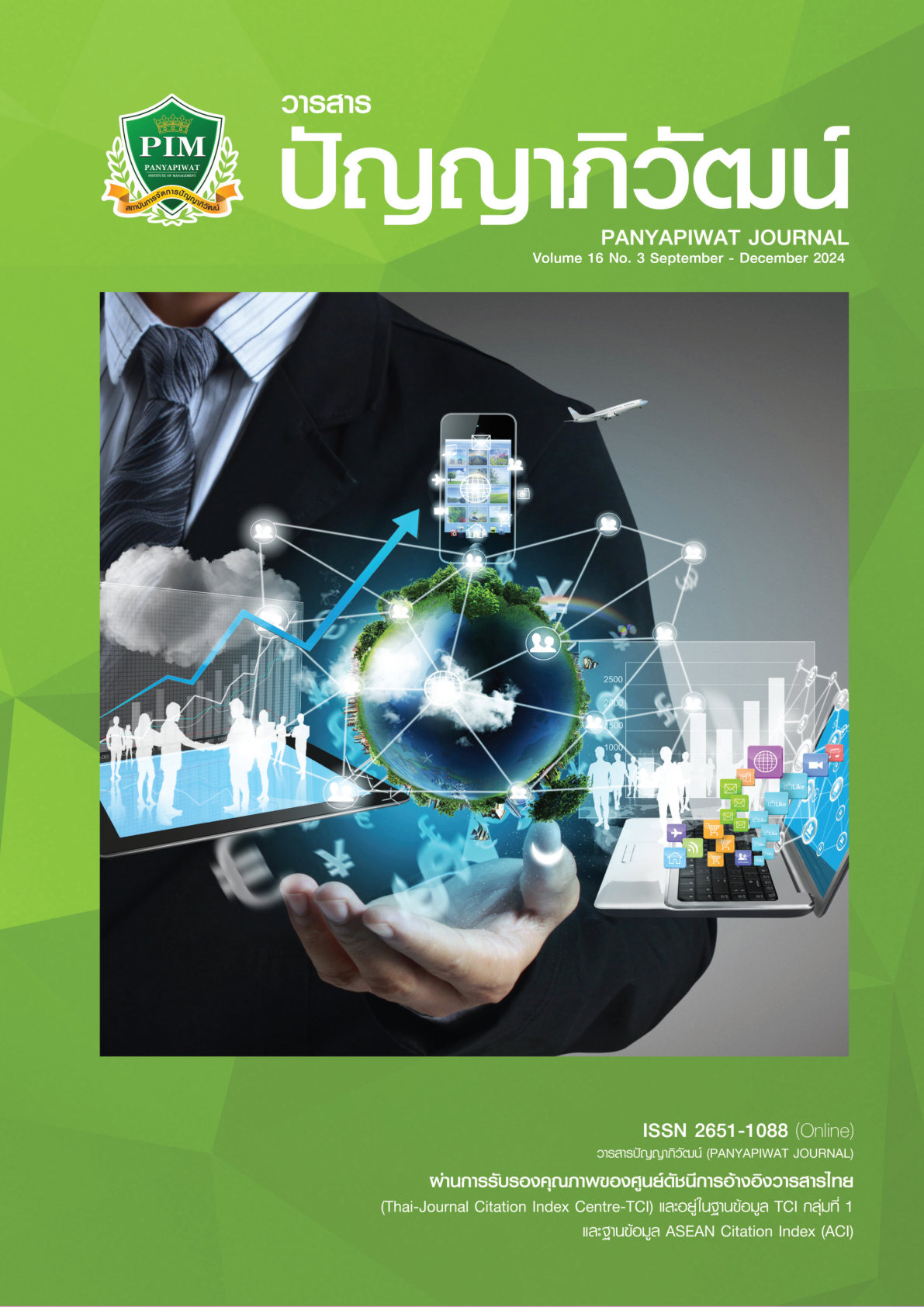THE DEVELOPMENT OF TOUR OPERATION TRAINING CURRICULUM ON COMPETENCY-BASED FOR UNDERGRADUATE STUDENTS TO PREPARATION IN THE TOURISM CLUSTER OF THAILAND 4.0
Main Article Content
Abstract
The objectives of this research were 1) to study the current conditions of and the needs for development of the training program; 2) to develop a competency-based tour operation training program; 3) to try out with the developed training program; and 4) to evaluate the effectiveness of the training program. The research process comprised four phases in accordance with the research objectives. In Phase 1, the research sample consisted of 40 persons from the tourism business sector and 66 students who had experience in the tourism industry, all of whom were purposively selected. Data were collected using a questionnaire with reliability coefficient of 0.95. Data were statistically analyzed using the frequency distribution, percentage, mean, and standard deviation. In Phase 2, five key stakeholders concerned with program development were invited for focus group discussion aiming at assessing the context and drafting the program. After that, the input factors were evaluated through a seminar involving seven experts, who assessed the program’s relevance and appropriateness using an evaluation form to assess the program’s relevance and appropriateness. In Phase 3, the developed program was piloted with third-year undergraduate students, divided into two quota-based sample groups of 26 participants each. The first group tested the assessment and evaluation tools and the second group participated in practical tourism management activities. Data analysis involved comparing mean scores using a paired–sample t-test based on pre-training assessments and post-training assessments. In Phase 4, 30 targeted users of the program were selected to evaluate the outcomes of the program’s effectiveness. Data collection was undertaken using a questionnaire validated for content consistency as the data collecting tool. After that, the collected data were statistically analyzed using the frequency distribution, percentage, mean, and standard deviation.
The research findings revealed the following: In Phase 1, both the tourism business group and the students had overall opinions at the lowest level towards the current state of knowledge application and operational skills in tour operation. Conversely, they identified the needs to enhance the competency for tour operation as the most significant requirement. Consequently, the context was assessed, and the program content and competencies were summarized and drafted in Phase 2. The program framework included the following components: 1) principles, 2) objectives, 3) functional competencies, 4) structure and contents, 5) training activities, 6) learning materials and resources, and 7) assessment and evaluation methods. In Phase 3, the pilot implementation of the program yielded the following outcomes: For Group 1, the evaluation tools, including the test and competency assessment forms, were deemed clear and comprehensible in their contents. The satisfaction assessment form demonstrated a high reliability coefficient of 0.95. These tools were subsequently applied to Group 2, where posttraining test scores on knowledge and understanding were significantly higher than pre-training scores. The t-value was 9.048, showing a statistically significant difference at the 0.05 level. Additionally, the competency test scores for guiding the tour operation exceeded the standard threshold of 80%, indicating a high level of effectiveness in skills and competencies. Students expressed the highest levels of satisfaction with all aspects of the program. In Phase 4, the overall evaluation of the program’s effectiveness was rated at the highest level. The results concluded that the program was of high quality and could be implemented effectively in future applications.
Article Details

This work is licensed under a Creative Commons Attribution-NonCommercial-NoDerivatives 4.0 International License.
I and co-author(s) certify that articles of this proposal had not yet been published and is not in the process of publication in journals or other published sources. I and co-author accept the rules of the manuscript consideration. Both agree that the editors have the right to consider and make recommendations to the appropriate source. With this rights offering articles that have been published to Panyapiwat Institute of Management. If there is a claim of copyright infringement on the part of the text or graphics that appear in the article. I and co-author(s) agree on sole responsibility.
References
Ajin, S. (2021). Curriculum development. Khon Kaen University Printing House. [in Thai]
Boonkheereerut, J., & Jaritthai, N. (2020). The information technology in the digital world to the changes in tourism styles. Panyapiwat Journal, 12(2), 285-301. [in Thai]
Insorn, P. (2011). Development of an adaptive student guidance model to promote logical thinking ability in intelligence-based learning [Master’s thesis]. King Mongkut’s University of Technology North Bangkok. [in Thai]
National Economic and Social Development Board. (2019). 20-year national strategic plan (2018-2037). https://www.nesdc.go.th
Nilpan, M. (2010). Manual for graduate-level curriculum evaluation. Graduate School, Silpakorn University. [in Thai]
Office of the National Economic and Social Development Council. (2019). Report on the progress of the implementation of the national reform plan and development according to the National Economic and Social Development Plan No. 12. Office of the National Economic and Social Development Board, Office of the Prime Minister. [in Thai]
Office of the Secretary of the National Strategy Committee. (2017). 20-year national strategic plan (2018-2037). https://www.nesdc.go.th
Patthanamethada, W. (2017). Learning management. https://www.kansuksa.com
Rithjaroon, P. (2015). Curriculum evaluation: Process concepts and use of evaluation results. STOU Journal of Education, 8(1), 13-28.
Suwanadee, S. (2016). A study of desirable characteristics and excellent competency framework of professional labor demanded by the ASEAN Economic Community: A case study of the tourism profession in the travel sector. Kasem Bundit University.
Thongpanit, P. (2013). Curriculum development, theories, principles, concepts, directions, trends. Silpakorn University Printing House, Sanam Chandra Palace Campus. [in Thai]
Tiengkamon, N. (2011). Holistic integrated research. Chulalongkorn University Printing House. [in Thai]
Wechayanon, N. (2016). Competency-based approach. The Graphico Systems. [in Thai]
Wongyai, W. (2011). Comprehensive curriculum development [Teaching documents for the subject theory of curriculum development and change]. Graduate School, Srinakharinwirot University. [in Thai]
Yothasingh, A., & Kamjadpai, S. (2016). Developing a training curriculum based on the learning concept combined to strengthen teachers’ competency in learner-centered assessment primary level. Silpakorn Educational Research Journal, 8(2), 270-283. [in Thai]


